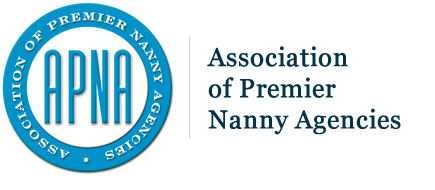It’s hard to believe that 2013 is almost over! There are certain things your families should be aware of at year-end to ensure they are compliant with all federal and state regulations. Please share with your families the following year-end tax tips, reminders, and changes that will take effect in 2014. We have also included a section outlining year-end tax tips for small businesses that you can apply to your agency.
Tax and Payroll Tips
Families may have questions about year-end planning and taxes for their nanny. These tips will help you answer the questions that may arise during this time of year.
- Families should verify the social security number and address on their nanny’s pay stub at the end of the year to make sure it has not changed.
- Nannies must receive a W-2 form and a Schedule H form for 2013 no later than January 31st, 2014 if they earned a cash wage of $1,800 or more in 2013.
- Taxable fringe benefits that must be posted into payroll for W-2 reporting should be reviewed by the family; this may include relocation or bonuses.
- Any gifts given to the nanny such as bonuses, cash, or non-cash gifts must be accounted for. The IRS counts these as taxable gifts and they must be reported as taxable income.
- Nannies should be reminded to review their income tax withholding status and submit a revised W-4 form if they wish to change their withholding for 2014. A nanny may wish to change their withholding status if they have had children, gotten married or divorced, bought a home, or worked multiple jobs within the past year.
- A record of the nanny’s name and social security number should be kept exactly as it appears on their social security card if they are expected to earn $1,900 or more in 2014.
Benefits
If a family offers benefits to their nanny, there are certain things they must pay attention to at the end of the year, depending on the benefit offered.
- Any third party sick pay, short-term or long-term disability postings must be captured and verified at the end of the year.
- If a Flexible Spending Account is offered as a benefit to the nanny, a family must verify the balance and confirm that the total amount will be deducted by the end of the year.
- If a nanny’s insurance coverage changed during 2013, the family must provide them with a new ID card.
- If a family offers vacation, sick, or paid time off to the nanny, families should reconcile all balances for year-end payout or carryover.
Updates and Reminders for 2014
There are a few tax-related reminders and changes being made in 2014 that your families should be aware of:
- The Federal Insurance Contributions Act (FICA) threshold will be increasing from $1,800 to $1,900. This means that if a family pays cash wages of $1,900 or more to their nanny in 2014, they are required to file taxes and pay their employee legally.
- Although a family may be exempt from FICA reporting, if they pay their nanny $1,000 or more each quarter, they are subject to the Federal Unemployment Tax (FUTA).
- State wage base thresholds are separate from FUTA requirements, and your families must pay state unemployment tax if they compensate their nanny between $500 and $1,000 per quarter depending on the state they are located in.
- The Social Security Maximum Taxable Wage will also increase in 2014 from $113,700 to $117,000. This is the maximum amount of earnings subject to Social Security taxes.
- In some states, the minimum wage will be increasing in 2014; please refer your families to this guide to see which states are affected.
Year-End Tips for Agencies
As a small business owner, you should be aware of Year-End Planning for your agency. It is important that everything is in order to ensure there are no surprises when the time comes to file taxes. Year-end planning isn’t something to put off or ignore. It’s important to look at your books and think about how your agency is likely to fare for the rest of 2013 and into early 2014. Moreover, by looking at your business over a longer period of time, you can make better decisions not just about money, but about running your business.
There are also benefits that come along with end of year tax planning which include:
- Having an estimate of what you will owe the IRS for the year to avoid any unexpected issues.
- Knowing if you are overpaying or underpaying the 2013 estimated tax payments.
- Being prepared so you can plan for expenses if economic changes have impacted your tax liability this year.
- Ensuring your business takes advantage of every possible tax break available; planning ahead saves you money on taxes.
For more information, please contact the Household Employment Experts at GTM Payroll Services at (888) 432-7972 or visit www.GTM.com.

